Recently, I attended the DELIVERING DEMOCRACY: Retrospect and Prospect conference organized by the G20 Civil Society 20 Delivering Democracy Working Group Secretariat, which was a remarkable experience. The conference aimed to explore innovative ideas and solutions to strengthen democratic institutions and promote civic engagement. The Civil 20, also known as the C20, is a global platform for civil society organizations to engage with the G20, the group of the world's largest economies, and contribute their perspectives and recommendations to the G20 decision-making process on issues related to social justice and sustainable development.
In this blog post, I will be sharing my insights and reflections as both a participant and panelist at the C20 international conference. As a participant, I got to learn from experts and advocates working on diverse issues, while as a panelist, I had the chance to share my own experiences, perspectives, and learnings. Through this post, I hope to share some of the key takeaways from the conference and contribute to ongoing discussions around global governance and activism.
Entering the Art of Living venue (where the conference was organized), I saw people from all over the world energized, smiling, and expressing passion and zeal to learn and contribute to a better society and world. They represented diverse sectors, including academia, corporates, faith-based institutions, government institutions, non-profit, think-tanks, and leading practitioners in civil society.
The conference began with a classical dance performance, lamp lighting, and welcoming remarks from Sri Sri Ravi Shankar, a humanitarian and spiritual leader. He emphasized the importance of education in making democracy vibrant and engaging all stakeholders in governance. He also highlighted the pillars of democracy: governance, media, judiciary, industry, and business, and the fifth - civil society. His remarks resonated with PRIA's initiatives, which aim to enable civil society organizations to play a crucial role in promoting active citizenship and holding governments accountable. By working with young people, we create safe spaces of conversation where young people can understand what democracy means in their everyday lives and the role they can play as active citizens in governance and local communities.
The welcome address was followed by a few more speakers addressing the delegates. Dr. R Balasubramaniam made a thought-provoking comment, ‘Democracy starts within families,’ which led me to wonder if families truly create a space for their members to practice democracy. Do young people feel safe and comfortable enough to share, negotiate, act, and speak up about their opinions, perspectives, and experiences? These are, after all, essential values for a healthy democracy, and it is crucial to impart them to young people to ensure a strong and vibrant democratic future.
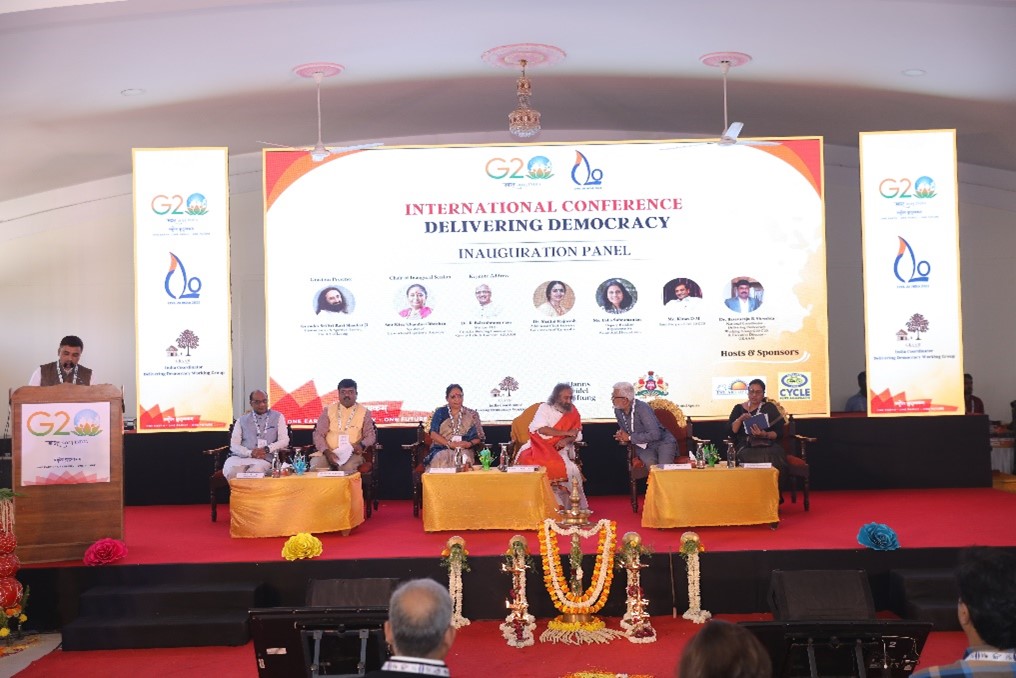
Ritu Khanduri Bhushan, the Speaker of the Uttarakhand Legislative Assembly, ended her speech with the quote, ‘If you want to raise a crop for one year, plant corn. If you want to raise a crop for decades, plant trees. If you want to raise a crop for centuries, raise men. If you want to plant a crop for eternities, raise democracies.’ Her words made me ponder about what civil society organizations, academia and other institutions are doing to raise democracy and democratic citizens. The posters presented by college-going youth at the conference highlighted various issues related to democracy, such as the right to vote, raising awareness for voting, and other general issues. However, democracy is more than just voting!
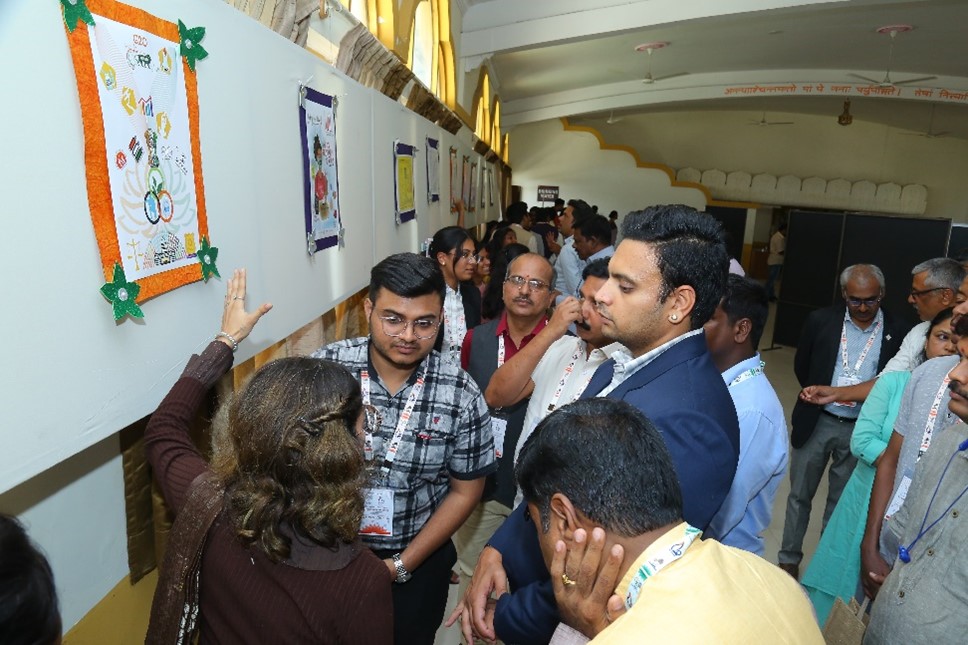
I also had the opportunity to participate as a panelist in a panel discussion titled ‘Youth and Democracy.’ The panel was composed of esteemed individuals, including Yaduveer Krishnadatta Chamaraja Wadiyar, Rashmi Samant, and Dr. Eshan Arya, who shared their thoughts and insights on the role of youth in promoting democracy. The participation of an international speaker provided a global perspective on the issues being discussed, making it an excellent prospect for learning and sharing best practices among the delegates. As a young person myself, I felt grateful for the chance to share my ideas on how youth can contribute to creating a more democratic society.
During the discussion, we delved into the socio-economic, cultural, and bureaucratic challenges that hinder youth participation in democratic processes, particularly for those with marginalized identities. The erosion of democratic norms and political polarization were also highlighted as factors that discourage youth engagement. However, the panelists also underscored the importance of creating a cohesive society that values the participation of every individual, regardless of their background. They emphasized the need for equal participation and active involvement of all in building a better India and, in turn, a better world. We also discussed young parliamentarians and the lack of opportunities which young people get to participate and make decisions in political discussions and spaces.
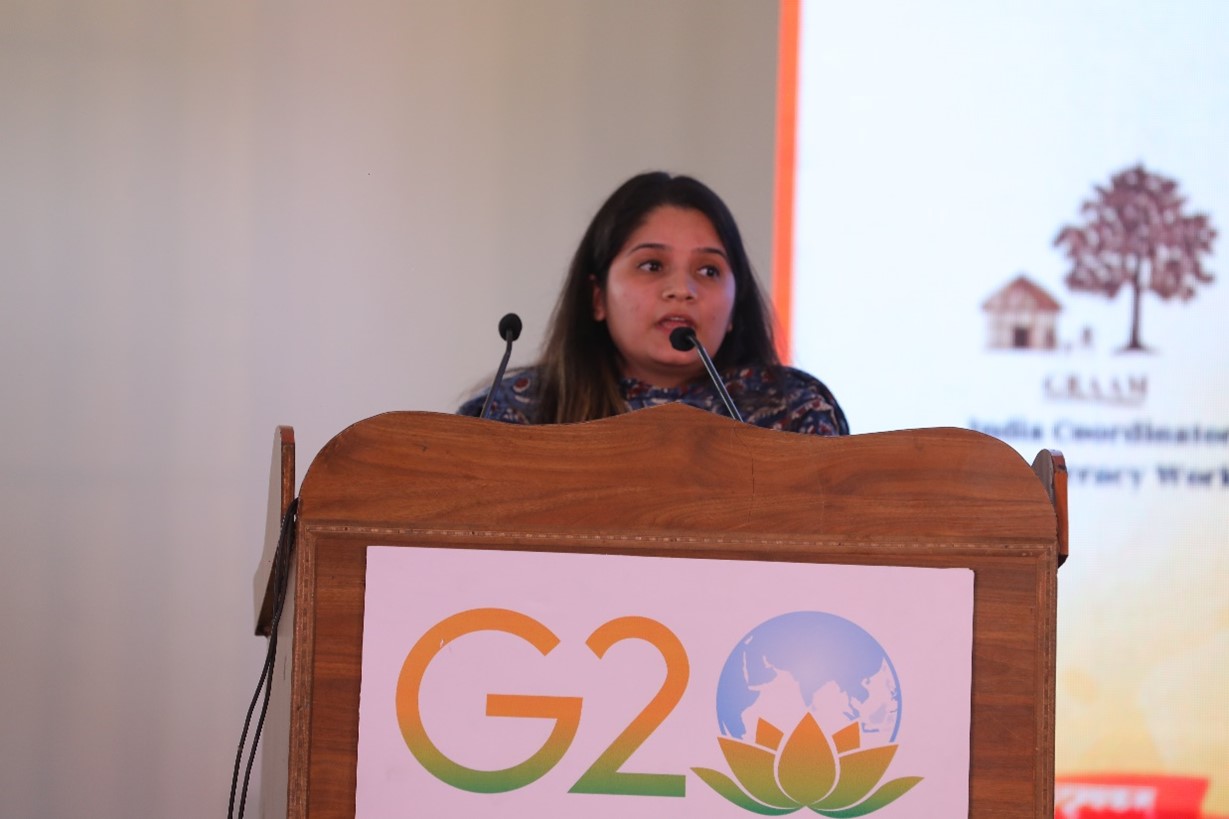
In my talk, I focused on the importance of creating safe and democratic spaces for young people to engage. I shared my experience with PRIA’s ‘Youth and Democracy’ initiative, which aims to educate young people about the meaning of democracy in their daily lives and their role as active citizens. The program adopts a participatory training approach, using sports, music, dance, and theater to interact with young people and encourage them to express themselves. The initiative also fosters critical thinking and respectful discourse by discussing personal yet contemporary issues. Moreover, the program follows a youth-oriented approach, allowing young people to plan, facilitate, and deliver programs that promote empowerment and agency. Finally, the initiative equips youth with the skills to undertake a Participatory Action Research Project, creating a generation of compassionate and committed leaders. The impact of the initiative has been significant, with young people becoming more aware of their rights and responsibilities and engaging in civic activities. They have also become more tolerant and respectful of diversity, creating a more inclusive society. The video of the talk can be found here.
The subsequent panel discussions were equally inspiring and thought-provoking, particularly the one where a speaker talked about a digital and inclusive India. After listening to him, I reflected on my recent field visit to Nagpur, where girls from Muslim communities created fake social media accounts to access these platforms. This made me question whether this is a truly digital and inclusive India. This question and experience led to a 30-minute discussion with the same speaker, where we talked about the challenges and opportunities of digital India.
On the following day, I heard civil society leaders from Lokniti Network, Piramal School of Leadership and Centre for Youth and Social Development about active citizenship and trusting the energy of youth. I was thrilled to see that leaders like them were trusting in the power of youth to bring change, rather than viewing them as naive and incapable. It's inspiring to see people who understand the potential of young people and are willing to support them in their endeavors towards making a difference in their communities.
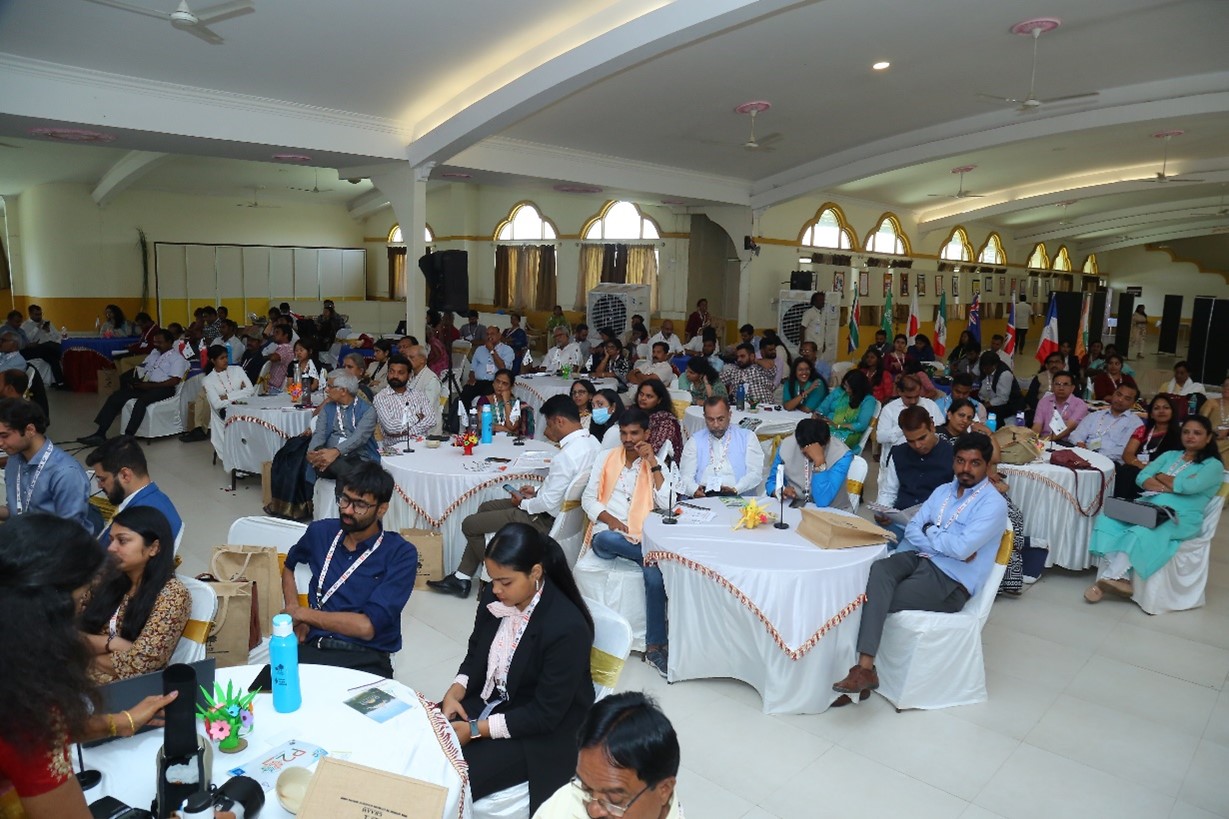
One of the most eye-opening talks was by Chhavi Rajawat, the Sarpanch of Soda in Rajasthan. She spoke about the disparity between her work at the grassroots level and her salary when compared to those working at the city or state levels. This was something I was unaware of, despite working in the development sector for five years. For once, it made me question my knowledge but also forced me to think about the role of civil society in addressing the challenges that come along with democratizing governance. Is this the idea of deepening democracy?
Over the two days, we, as a group of delegates and panelists, brainstormed, debated, got into heated arguments, and looked at the idea of democracy from different perspectives. I also met various youth organizations working in different parts of India on issues such as youth political representation, leadership, democracy, gender, empowerment, and aspirations, among others. It was inspiring to see the empowering and inspiring work they were doing with young people. It was a privilege to have the opportunity to attend such an inspiring two-day event. The event reminded me of the power of collective action and collaboration in creating a better future for all.
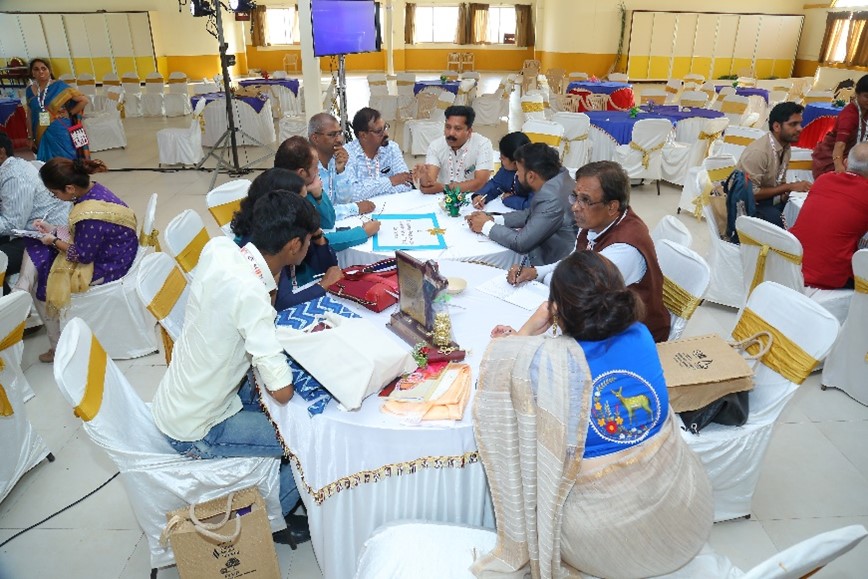
Meeting people from different parts of India and sharing our work and approaches made me more knowledgeable and confident about the work we are doing with youth. I have not seen many initiatives that take PRIA’s approach, and I believe it is a unique and effective way to empower young people and promote positive change in communities. I believe that this approach will have a significant impact on empowering young people and strengthening inclusive & participatory democracy.
Ms. Meghna Sandhir, along with our team members, has been engaged in the Drivers, Limiters, and Barriers to Women's Trust in Digital Platforms Project since last year. She is blogging about her firsthand experiences from visiting our project sites in India.
Ms. Aashini Goyal, along with our team, has been working on the Drivers, Limiters, and Barriers to Women's Trust in Digital Platforms Project for the past two months. This blog recounts her firsthand experiences from visiting our project site in India.
Ms. Meghna Sandhir, our programme officer, along with colleagues from Martha Farrell Foundation and Pro Sport Development, participated in the Trainers of Training (ToT) program conducted at Sahbhagi Shikshan Kendra - SSK Lucknow. The training took place from December 4th to December 10th, 2023.